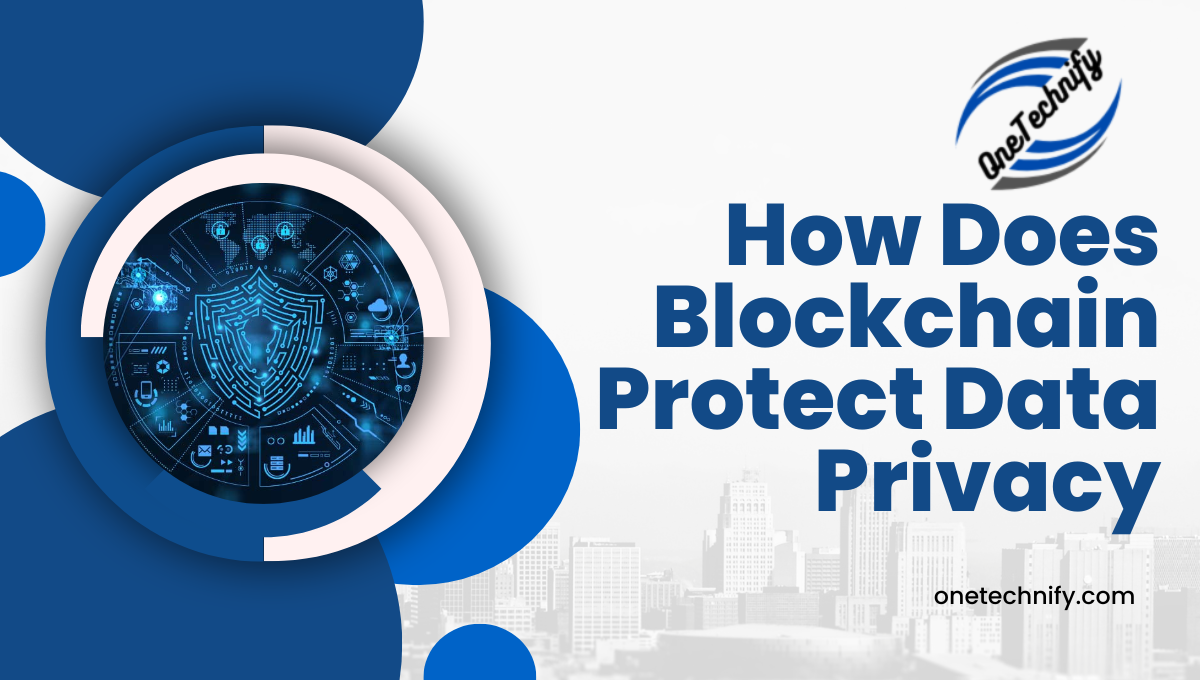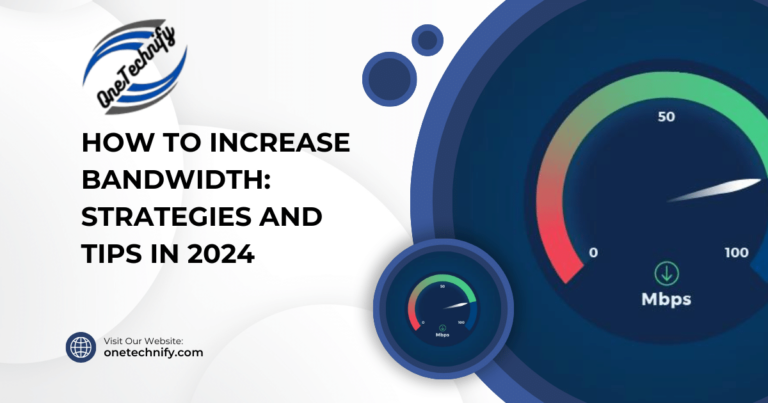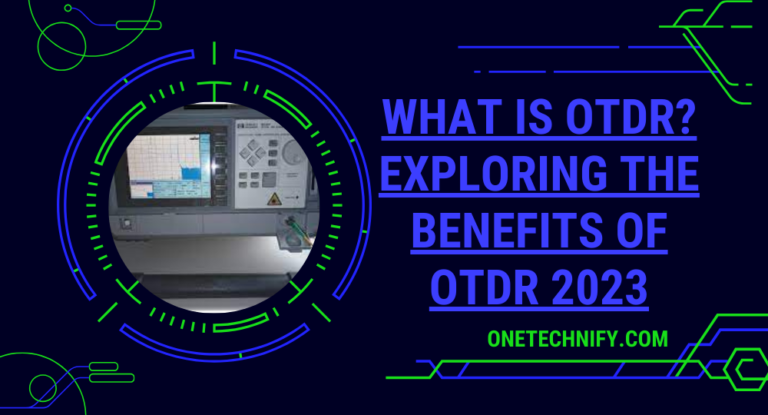Are you concerned about the security and data privacy on public blockchains? Wondering how blockchain technology can safeguard your sensitive information and cryptocurrencies? Look no further! Blockchain technology has revolutionized data privacy protection, ensuring secure transactions and enhanced confidentiality for bitcoin and other cryptocurrencies.
By leveraging their decentralized nature, public blockchains eliminate the need for intermediaries, reducing the risk of unauthorized access to cryptocurrency transactions. But that’s not all—the immutable and transparent nature of public blockchains adds an extra layer of defense against data manipulation for bitcoin and other cryptocurrencies. With the implementation of GDPR regulations, protecting personal information and cryptocurrencies has become more crucial than ever.
By utilizing private keys, public blockchains guarantee that only authorized individuals have access to sensitive data and cryptocurrencies. So, let’s dive into this fascinating world where cutting-edge technology meets robust data privacy measures in the realm of public blockchains and cryptocurrency. Get ready to explore how public blockchains safeguard your information and cryptocurrencies with their unrivaled security features!
Traditional Systems’ Data Privacy and Security Issues
Centralized systems, including those storing and managing personal data, are vulnerable to data breaches and hacking attacks. In today’s digital age, where decentralized identity is crucial, the risk of hackers compromising cryptocurrency systems is a major concern. Traditional systems relying on centralized servers are particularly susceptible to these security threats.
Data breaches occur when hackers gain unauthorized access to sensitive information, such as personal data, causing security issues. This can lead to severe consequences for individuals whose privacy is compromised. Personal data privacy is crucial, especially with the implementation of GDPR and the need for sovereign identity. It helps maintain trust between users and the organizations that handle their information.
Moreover, the lack of transparency in traditional systems raises concerns about data privacy and security issues. You may not know how your personal info is being collected and used. This lack of transparency erodes trust and leaves individuals feeling uncertain about the safety of their personal data in a decentralized environment. Additionally, organizations need to ensure compliance with GDPR regulations to protect user data.
In addition to vulnerability to hackers and breaches, inadequate security measures in traditional systems compromise the privacy of data and private keys. These systems may not employ robust encryption techniques or multi-factor authentication methods, leaving them exposed to potential attacks. As a result, protecting personal privacy in such environments becomes challenging, especially when dealing with cryptocurrencies and other digital assets.
To address the issues surrounding data privacy and personal information, governments around the world have enacted data privacy laws such as the GDPR. These laws provide guidance for organizations on how to securely handle personal data transfers and establish penalties for non-compliance with regulations. This ensures the protection of user privacy rights and the safeguarding of identities.
One example of such legislation is the General Data Protection Regulation (GDPR), a set of regulations implemented by the European Union to address security issues and provide guidance on data protection. The GDPR sets strict requirements for organizations processing personal information of EU citizens while granting individuals greater control over their own data. Similar data protection laws exist in many other countries worldwide, ensuring the security and privacy of personal information in an increasingly digital world, especially in the context of cryptocurrency.
Despite the General Data Protection Regulation (GDPR) and other privacy laws, traditional systems remain vulnerable to breaches that can compromise user privacy. A single instance of a data breach can have legal consequences for both the individuals and organizations involved. It not only jeopardizes user privacy but also exposes sensitive data on blockchains to potential misuse and unauthorized access.
How Blockchain Addresses Data Privacy Concerns
Blockchain technology, with its use of cryptographic techniques and distributed ledger technology, has become a powerful solution for addressing data privacy concerns in the age of GDPR. This technology offers enhanced security and privacy for sensitive information, making it particularly relevant for the cryptocurrency industry and intelligence gathering.
Cryptographic Techniques for Data Security
One of the key ways blockchains protect data privacy is through the use of cryptographic techniques in cryptocurrency processing. In a blockchain network, data is stored in blocks that are linked together using complex mathematical algorithms. Each block contains a unique identifier called a hash, which ensures the integrity of the data it holds. Transactions on the blockchain are secured using public-private key pairs for identity verification.
Blockchains assign public addresses to individuals in cryptocurrency transactions, providing an extra layer of privacy and dissociating them from their actual identities. This enhances the security and confidentiality of transactions within organizations.
Elimination of Intermediaries Enhances Privacy
Traditional systems often rely on intermediaries to facilitate transactions and store sensitive information. However, these intermediaries can be vulnerable to security breaches or misuse of personal data. Blockchains eliminate the need for intermediaries in cryptocurrency transactions and enable direct peer-to-peer interactions while complying with privacy laws.
By removing intermediaries from the equation, blockchains minimize the exposure of personal information in the context of cryptocurrency. Instead of relying on centralized authorities or third-party service providers to handle sensitive data like email addresses, individuals have greater control over their own identity within a decentralized network that adheres to privacy laws.
Consensus Mechanisms Ensuring Trust and Integrity
Another way blockchains safeguard data privacy is through consensus mechanisms. Consensus ensures that all participants in a blockchain network agree on the validity and order of transactions, providing trust and integrity within the system. This is particularly important for organizations handling cryptocurrency, as they need to comply with GDPR regulations.
Consensus mechanisms like Proof-of-Work (PoW) or Proof-of-Stake (PoS) require organizations or users in the system to validate transactions by solving complex mathematical puzzles or staking their own cryptocurrency holdings. This prevents unauthorized modifications or tampering with stored data and ensures the security of the identity of the users.
Moreover, consensus mechanisms contribute to the overall security and privacy of blockchain networks in the cryptocurrency space. When lots of people and groups check transactions, it’s harder for bad guys to mess with or get important personal information.
Protecting Data Privacy with Blockchain Technology

Encryption algorithms on blockchain protect sensitive information.
Blockchain technology utilizes encryption algorithms to ensure the protection of sensitive information, including personal privacy. Encryption is the process of converting data into a code that can only be deciphered with the use of a specific key. In the context of blockchain and cryptocurrency, this means that all data stored on the blockchain is encrypted, making it incredibly difficult for unauthorized individuals to access and understand. This level of security aligns with privacy laws such as the GDPR.
One example of encryption in blockchain is seen in cryptocurrencies like Bitcoin, which ensures personal privacy protection. When a transaction occurs using Bitcoin, it is encrypted and added to a block within the blockchain, in compliance with privacy laws. This encryption guarantees that only those who possess the correct keys can decrypt and access the identity data. The use of cryptographic techniques aligns with the GDPR regulations.
Smart contracts enable selective disclosure of personal data, ensuring privacy.
Another way blockchain technology protects data privacy is through smart contracts. These contracts allow for selective disclosure of personal data, providing individuals with control over what information they share. This is important in the context of GDPR laws, as it ensures that user identity remains protected.
For instance, imagine a healthcare system built on a blockchain network that ensures secure personal data transfers. Patients could grant permission to specific healthcare providers or researchers to access their participant data via smart contracts, complying with GDPR regulations. By doing so, patients have complete visibility and authority over who can view their sensitive health information while maintaining their privacy from unauthorized parties, reducing the risk of a data breach.
Permissioned blockchains restrict access to authorized participants, safeguarding privacy.
In addition to encryption and smart contracts, permissioned blockchains play a crucial role in protecting user data privacy in compliance with GDPR laws. Unlike public blockchains, where anyone can participate in verifying transactions, permissioned blockchains restrict access to authorized participants only, ensuring identity protection.
This restricted access ensures personal privacy protection and compliance with privacy laws, such as GDPR. It allows trusted entities within the network, like financial institutions, to utilize permissioned blockchains for secure transactions while safeguarding identity and preventing unauthorized access to transaction details or customer data.
By implementing permissioned blockchains, organizations can maintain a higher level of privacy and control over user data, reducing the risk of unauthorized access or exposure to identity threats.
The Potential of Blockchain in Solving Privacy Concerns
Blockchain technology has emerged as a powerful solution to address data privacy concerns. With its decentralized nature and unique features, blockchain offers a promising avenue for protecting sensitive information and ensuring the security of personal identities. The use of blockchain technology can revolutionize how we safeguard our data.
Users’ Control Over Data
One of the key advantages of blockchain is its ability to empower users with control over their personal privacy. Blockchain is different from old systems. It lets people save their information in a bunch of places instead of just one. This means that users can decide who has access to their data and maintain ownership over it through cryptographic keys. Additionally, blockchain aligns with privacy laws, further enhancing the protection of personal information.
Furthermore, smart contracts play a vital role in ensuring privacy and identity protection on the blockchain. These self-executing contracts enable predefined rules and conditions for accessing or sharing specific data. By leveraging smart contracts, individuals can establish secure protocols for granting or revoking access to their private information. For instance, healthcare records can be securely shared with authorized medical professionals while remaining inaccessible to unauthorized parties.
Interoperability for Cross-Platform Privacy Protection
Interoperability between different blockchains is crucial for achieving comprehensive privacy protection across various platforms. As the number of blockchain networks increases, ensuring seamless communication between them becomes essential. By enabling interoperability, users can securely transfer and verify data across multiple blockchains while maintaining privacy.
Decentralized identity solutions significantly contribute to cross-platform privacy protection by enabling individuals to create and manage their digital identities without relying on centralized authorities. These solutions integrated into blockchains allow users to authenticate themselves without compromising their personal information, ensuring secure data processing and protecting participant data.
Strengthening Data Privacy with AI Integration
The use of blockchain technology extends beyond its standalone capabilities; integration with other technologies like artificial intelligence (AI) can further enhance data privacy. AI algorithms can be used to analyze and detect potential threats or breaches in the blockchain network. By continuously monitoring transactions and identifying suspicious activities, AI can help prevent unauthorized access to sensitive data.
Moreover, AI-powered privacy-preserving techniques such as differential privacy can be applied to blockchain networks. These techniques add noise or randomness to data, making it challenging for malicious actors to extract meaningful information from the blockchain. By combining the immutability of blockchain with AI’s advanced privacy-enhancing capabilities, a robust layer of protection is established for sensitive data.
Zero-knowledge Proofs: Enhancing Privacy on Blockchain
Zero-knowledge proofs, also known as knowledge proofs, play a crucial role in bolstering data privacy on the blockchain. By allowing verification without revealing underlying information, these proofs provide an effective means of ensuring confidentiality and anonymity within the peer network architecture of blockchain.
One key advantage offered by zero-knowledge proofs is their non-interactivity property. Unlike traditional verification methods that require multiple interactions between the prover and verifier, zero-knowledge proofs enable efficient and private transactions on the blockchain with minimal back-and-forth communication. This property significantly enhances the speed and scalability of blockchain networks while ensuring compliance with data protection laws and facilitating secure personal data transfers and data processing for participant data.
Zero-knowledge proofs on the blockchain keep your information private. With this cryptographic technique, users can prove their identity or compliance with certain conditions without divulging any additional personal information. By employing public keys to verify the authenticity of transactions, individuals can maintain their privacy while participating in secure and transparent exchanges.
To better understand how zero-knowledge proofs work in the context of personal data privacy, let’s consider a simple example: Alice wants to prove her age to Bob without disclosing her actual birthdate. Using a zero-knowledge proof, Alice can demonstrate that she is over 18 years old by providing evidence that satisfies Bob’s verification requirements without revealing her specific birthdate or any other sensitive details. This technology plays a crucial role in personal privacy protection and secure personal data transfers, ensuring effective data protection.
In addition to enhancing privacy for individual users, zero-knowledge proofs also contribute to safeguarding sensitive business data on the blockchain. Companies can employ this cryptographic technique to validate transactions and share confidential information securely within their network without exposing it to unauthorized parties.
Furthermore, since zero-knowledge proofs allow for efficient verification processes while preserving privacy and data protection, they are particularly well-suited for applications such as digital voting systems or supply chain management. These use cases require both transparency and confidentiality of blockchain data and personal data, making zero-knowledge proofs an ideal solution.
Immutable Data Storage: Safeguarding Data Integrity
Blockchain technology has revolutionized the way data is protected, particularly in terms of privacy. With its unique characteristics, blockchain ensures that data remains secure and unaltered, providing a robust shield against unauthorized modifications. This immutability of data storage plays a crucial role in safeguarding data integrity.
Once recorded on the blockchain, personal privacy protection data becomes immutable. It cannot be altered or deleted, ensuring its integrity throughout its lifecycle. This feature is particularly important for personal privacy protection. The tamper-proof nature of immutable storage prevents any unauthorized modifications, making it nearly impossible for malicious actors to manipulate or tamper with the personal privacy protection data.
When data is stored in a way that can’t be changed, it helps make sure people are responsible and honest with it. Every transaction and record are securely stored on the blockchain, ensuring personal privacy protection and compliance with data privacy laws. This creates an indelible history that can be traced back to its origin, promoting trust among users and allowing for easy verification of information without relying on intermediaries.
To demonstrate the relevance of blockchain’s immutable data storage for personal privacy protection, let’s consider an example involving artificial intelligence (AI) guidance systems in autonomous vehicles. These AI models rely on vast amounts of training data to make informed decisions while driving. By utilizing blockchain technology, the integrity and security of this training data can be ensured, providing personal privacy protection.
In this scenario, each entity involved in collecting and contributing training data for personal privacy protection would record their datasets on the blockchain. The immutability feature guarantees that no party can modify or manipulate the shared datasets without consensus from all participants. This not only prevents any malicious attempts to inject biased or incorrect information but also provides a transparent mechanism for tracking contributions and ensuring fairness in personal privacy protection.
Furthermore, Blockchain’s immutable architecture adds an extra layer of security and control for data protection and compliance with data privacy laws. Smart contracts deployed on the blockchain can define specific rules for accessing and executing code within these systems, ensuring personal data privacy. This allows for clear identification and verification of authorized entities, minimizing the risk of unauthorized code execution or malicious interference.
How does blockchain protect data privacy? Final Words
In conclusion, blockchain technology offers a robust solution for protecting data privacy. Traditional systems often face significant challenges in ensuring the security and privacy of sensitive information. However, blockchain addresses these concerns by leveraging its unique features.
By utilizing decentralized networks and cryptographic techniques, blockchain ensures that data remains secure and private. The immutability of data stored on the blockchain safeguards against unauthorized modifications or tampering, enhancing data integrity.
Furthermore, zero-knowledge proofs play a crucial role in enhancing privacy and data protection on the blockchain. This cryptographic technique allows for the verification of personal data without revealing any underlying details, ensuring confidentiality while validating transactions or verifying identities.
The potential of blockchain in solving privacy concerns is immense. As organizations increasingly recognize the importance of protecting sensitive data from unauthorized access or breaches, they are turning to blockchain as a viable solution. Its decentralized nature eliminates single points of failure and reduces the risk of data breaches.
To fully harness the benefits of blockchain technology for data privacy protection, it is essential for individuals and businesses alike to embrace this innovative solution. By adopting blockchain-based systems and platforms that prioritize privacy, users can regain control over their personal information and mitigate risks associated with centralized databases.
In summary, blockchain technology offers a powerful means to protect data privacy through its decentralized nature, zero-knowledge proofs, and immutable data storage capabilities. By embracing this technology, individuals and organizations can safeguard their confidential information more effectively.
Frequently Asked Questions (FAQs)
How does blockchain ensure data privacy?
Blockchain ensures data privacy through its decentralized network architecture and cryptographic techniques like zero-knowledge proofs. These features prevent unauthorized access to sensitive information while maintaining transparency within the network.
Can blockchain prevent data breaches?
Blockchain’s decentralized nature reduces the risk of single points of failure commonly exploited in traditional systems. While not completely immune to attacks, implementing proper security measures on a well-designed blockchain network significantly enhances resistance against data breaches.
Are there any real-world examples of blockchain protecting data privacy?
Yes, several industries have already started leveraging blockchain for data privacy protection. For instance, healthcare organizations use blockchain to securely store and share patients’ medical records while maintaining their confidentiality.
How can individuals benefit from blockchain’s data privacy features?
Individuals can benefit from blockchain’s data privacy features by having greater control over their personal information. They can selectively disclose specific details without revealing the entire dataset, ensuring a higher level of privacy in transactions or identity verification processes.
What steps can businesses take to implement blockchain for data privacy?
Businesses should assess their specific requirements and choose suitable blockchain platforms that prioritize data privacy. They should ensure proper encryption methods are employed and establish robust access controls to protect sensitive information effectively.
Does using blockchain guarantee absolute data privacy?
While blockchain provides enhanced security and privacy measures compared to traditional systems, it is not entirely foolproof. Implementing additional security protocols and best practices alongside the utilization of blockchain technology is crucial for maximizing data privacy protection.
How can I get started with utilizing blockchain for data privacy protection?
To get started with utilizing blockchain for data privacy protection, individuals and businesses can explore various resources available online that provide guidance on implementing this technology. Seeking professional advice from experts in the field can help navigate the complexities involved in adopting blockchain solutions.






